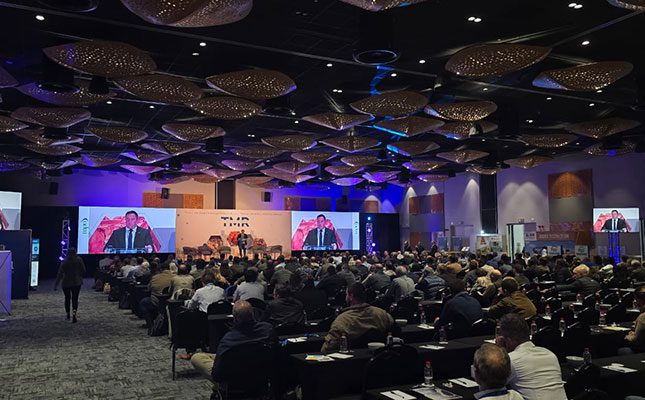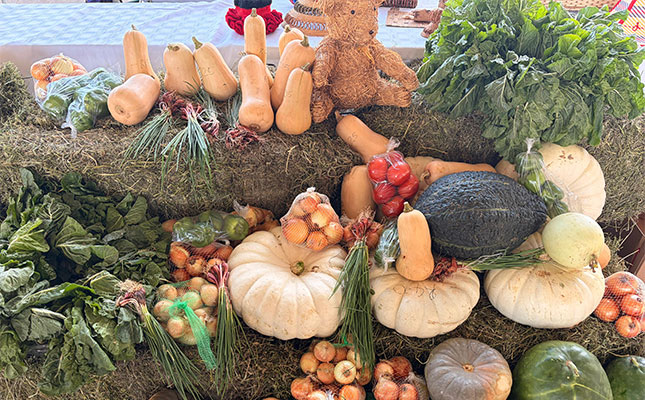
The minister was speaking at the opening of the 2025 Total Mixed Ration (TMR) Conference hosted by the Milk Producers’ Organisation (MPO) from 8 to 10 June at the Radisson Hotel OR Tambo in Gauteng.
The conference brought together a cross-section of the livestock industry, from milk, red meat, and sheep producers, to feedlot operators, veterinarians, and agribusiness experts.
The event aimed to foster knowledge sharing, promote innovation, and address key challenges in animal nutrition, health, and farm efficiency. It also placed a strong emphasis on smart technologies such as robotic milking, artificial intelligence (AI), and precision monitoring, equipping producers with tools for future-ready farming.
Delivering his keynote address on Monday, the minister detailed five strategic pillars intended to guide South Africa toward greater food security, and stronger export performance in the dairy and red meat sectors: biosecurity and disease resilience, structural transformation and inclusion, regulatory efficiency and trade enablement, climate adaptation, environmental stewardship, and public-private partnerships.
“We must reframe communal livestock not just as a store of wealth, but as an economic engine that, if formalised and supported, can lift entire districts out of poverty,” said Steenhuisen.
Steenhuisen highlighted the urgent need for a sustainable, nationally coordinated vaccination programme to combat Foot-and-Mouth Disease (FMD), and announced that vaccines have been ordered for the outbreak in KwaZulu-Natal, while tracing investigations continue in Gauteng.
“We need upgraded veterinary infrastructure, and strong biosecurity protocols, not only at our borders, but at farm level, transport corridors, and auction sites,” he added. “Traceability is also non-negotiable.”
He also said that government would increase investment in rural infrastructure, which included feedlots, dip tanks, milk collection centres, and improved rangeland.
Steenhuisen emphasised the importance of black and youth-owned livestock businesses being fully integrated into formal markets.
He also acknowledged that regulatory inefficiencies and non-tariff barriers remained obstacles to export growth, and promised action.
“Our export certification processes are too slow. We are fixing this by strengthening our Export Certification Coordination Committee and aligning with the Department of Trade Industry and Competition and Department of International Relations and Cooperation to streamline trade strategy,” he said.
A recurring theme in Steenhuisen’s address was the need for stronger collaboration between public and private sectors.
“We are committed to strengthening platforms such as the Red Meat and Dairy Master Plans and creating offtake agreements, joint extension services, and coordinated disease control.”
The opening session also featured a compelling talk from Dr Shaun Morris, feedlot consultant and director of Octavoscene, who addressed the consequences of the FMD crisis.
“There must be consequences for those who spread the disease. The regulations are there – they must be enforced,” Morris said.
A highlight of day two (10 June) was the panel discussion on biosecurity on farms and feedlots, led by Dr Danie Odendaal, and including industry leaders such as
Dr Dirk Verwoerd (Karan Beef), Joubert Fourie (Limpopo Dairies), and Bull van Rensburg of Groenwei Boerdery. This panel explored how on-farm biosecurity can mitigate disease outbreaks and enhance productivity.
Also on the agenda were presentations by international experts like Dr Paolo Fantinati of Novonesis, who provided scientific insight into feed efficiency, mycotoxins, and sustainable supplementation, and Stef du Plessis of Epic, who focused on aligning workplace culture with business strategy for farm success.
Get trusted farming news from Farmers Weekly in Google Top Stories.
➕ Add Farmers Weekly to Google ✔ Takes 10 seconds · ✔ Remove anytime









